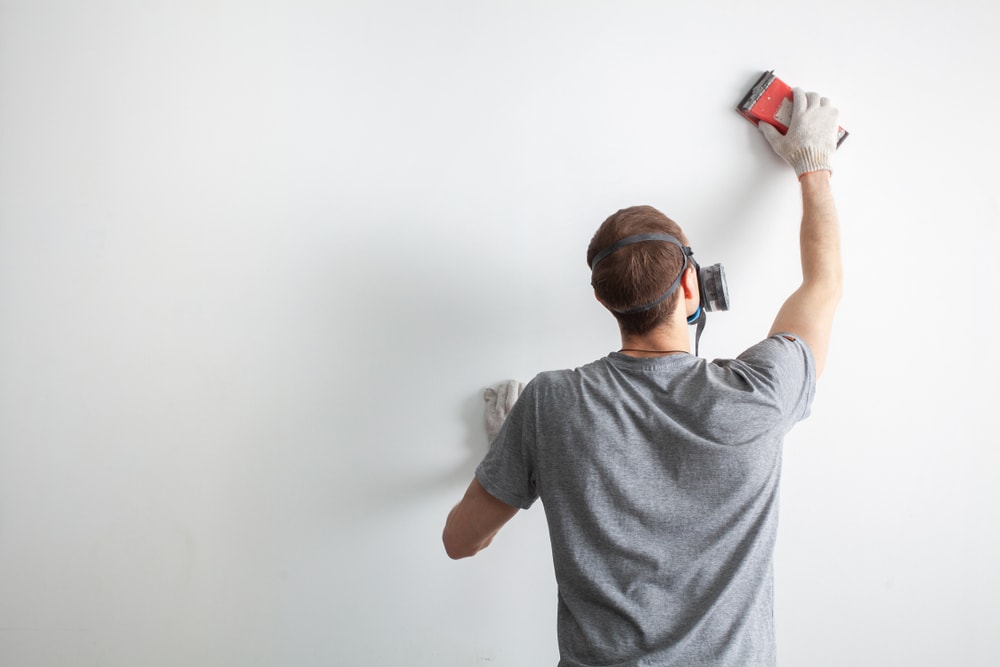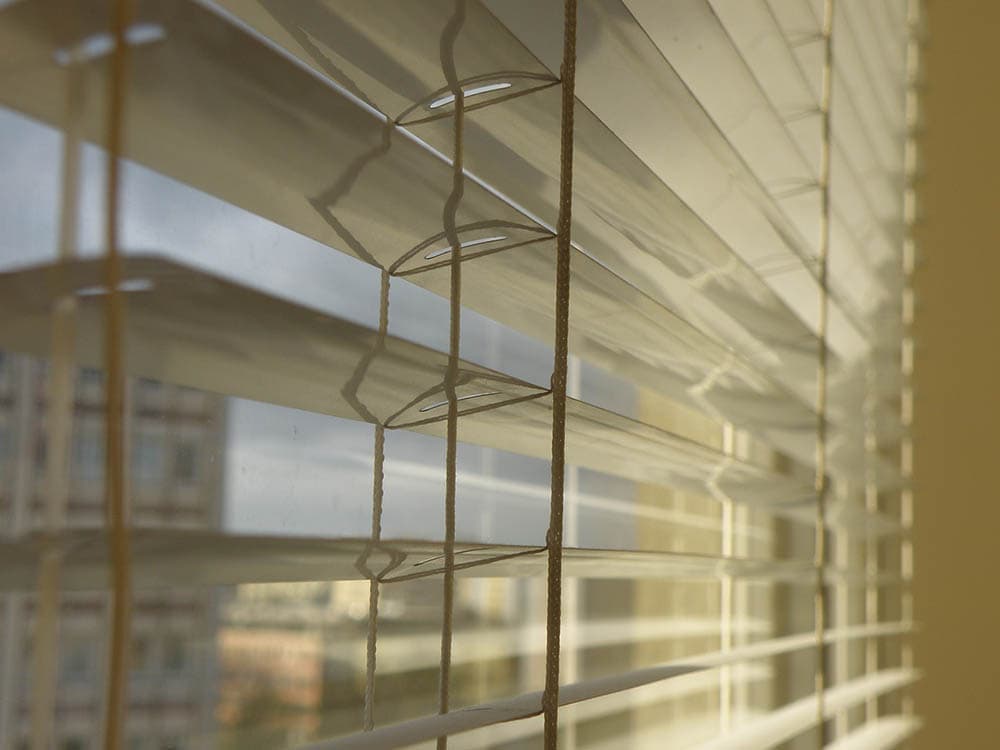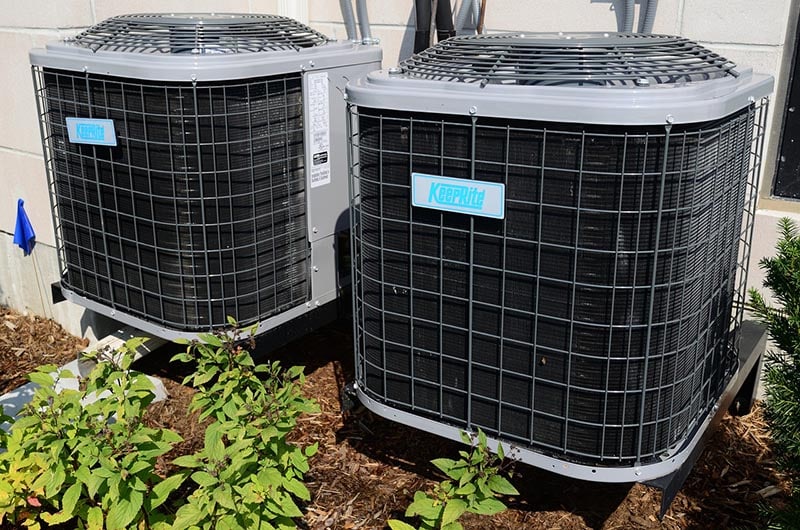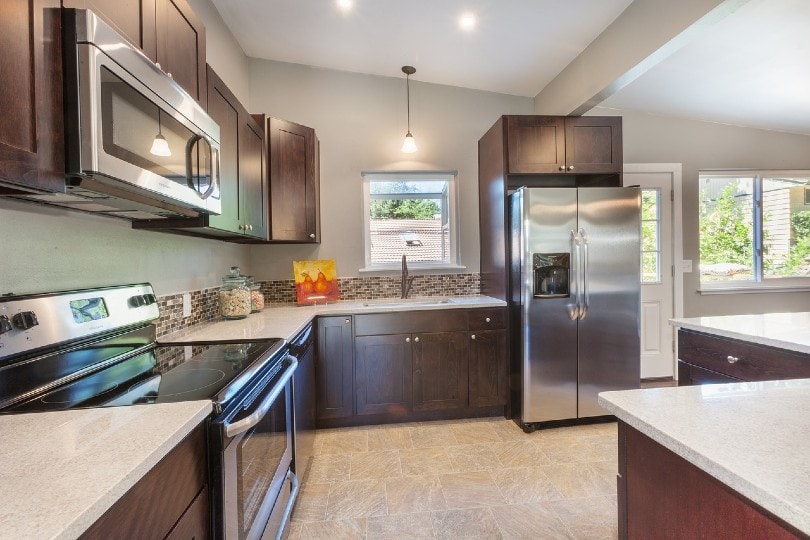What Not to Fix When Selling a House? 10 Things
-
Kristin Hitchcock
- Last updated:

When selling your house, it is often recommended to fix most things. After all, most people don’t want to purchase a broken house. However, that doesn’t mean that you need to fix everything. In many cases, you can leave some things unfixed without affecting the overall value of your house.
You can save a lot of money by not fixing everything in your home. Some wear-and-tear is considered normal when it comes to older homes. Therefore, many buyers will accept some types of damage.
Here is a list of common fixes that aren’t necessary when selling your home.
The 10 Things Not to Fix When Selling a House
1. Partial Fixes
Don’t take shortcuts when making renovations. If you’re going to fix something in your home, we highly recommend going all in. Fix it well, preferably by a professional. New owners may not like DIY repairs, especially if they are newer.
Furthermore, we recommend that you don’t do any partial renovations, even if they are just for visual appeal. You should update the whole room or none of the rooms at all. Fixing only a part of the room can make it look rather strange. Therefore, don’t renovate the bathroom tiles if you aren’t renovating the rest of the bathroom.
Don’t plan on renovating just a part of the house.

2. Normal Wear-and-Tear
If something is normal for the age of the home, you may not have to fix normal wear-and-tear. The average homebuyer will overlook most normal wear and tear, especially if they come from a home of a similar age. Plus, buyers often don’t spend long in a home. Therefore, the sheer time complications will prevent them from picking up on many small problems.
Therefore, focus your money on larger, functional problems.
3. Window Accessories
Broken blinds can be an eyesore. However, that doesn’t mean that you need to fix them. Instead, you can take the blinds down. No potential buyer will turn down your home because there are no blinds. Plus, many buyers will replace blinds with options they like.
Therefore, if your blinds are broken or your curtains are stained, take them down. Not only does this allow more natural light to come into your home, but it also saves you money. Deep clean the windows to make them look nice and then leave them alone. There is no need to spend money on window accessories.

4. Cosmetic flaws
If something is only cosmetic, there is often no reason to fix it. Many buyers have their own cosmetic taste. Therefore, they may change something even if you fix it. Landscaping and painting fall into this category, for instance. Even if you repaint the wall, a buyer may repaint it. Therefore, we don’t recommend messing with these small cosmetic problems.
With that said, some cosmetic issues are more involved. Replacing cracked countertops and stained tubs can be expensive. Therefore, it is mostly a matter of whether these repairs will make you money later. If something is straightforward to fix, the buyer might not mind doing it themselves.
If you can quickly fix some cosmetic issues, they may be worth pursuing. However, don’t risk half-fixing an issue or making the situation worse. If something will be expensive to fix and it is only cosmetic, skip it.
5. Minor Electrical, Plumbing, and HVAC Problems
Homes do not have to “be to code” when you’re selling them unless they are a new construction. Therefore, there is no need to go through the home and fix every little issue that might make it “out of code.” Unless the issue actually causes a problem, you typically don’t have to worry about fixing it.
Aging systems do not need to be replaced, for instance. Your water heater may be a bit old, but this doesn’t mean you need to replace the whole thing. Even if your heater makes loud noises when it turns on, you don’t need to replace the whole unit.
Of course, if something is dangerous with the home, you have to tell these prospective buyers. It is required in the Seller’s Disclosure Notice. However, if everything works fine, there isn’t a reason to dig up problems.

6. Driveway cracks
Driveway and walkway cracks are pretty normal. Over time, these surfaces will crack, even when made very well. Therefore, there is no reason to fix these cracks. Buyers typically understand that these cracks happen. As long as the surface is still usable, there isn’t a reason to make repairs, especially considering how costly they can become.
Of course, extremely large cracks must be fixed. Hairline fractures aren’t a problem and can be ignored, assuming the surface is still usable.
7. Consider Your Neighborhood
You can’t change where your house is located. Therefore, you should be very careful regarding overdoing renovations. If you renovate far past what your neighbors have, you may not make your money back.
For this reason, pricey renovations aren’t usually necessary. The neighborhood may not allow you to make your money back, and they usually aren’t necessary to sell the house at a fair price.

8. Decorations
We don’t recommend spending money on fancy art or furniture. In many cases, these items will be removed when you move, so buyers don’t consider them when buying the house. Furthermore, replacing them can cost quite a bit. It’s best to avoid purchasing expensive decorations unless you plan to take them to your new house.
Occasionally, home buyers may ask to purchase furniture from you. However, this usually won’t help you make your money back. As used furniture, it will likely be worth less than when you purchased it. Therefore, this method usually doesn’t work great if you’re purchasing new furniture, to begin with.
9. Appliances
Similar, to furniture, we don’t recommend purchasing new appliances, either. Many times, home buyers expect to bring new appliances with them. Many take their older appliances with them, though some purchase brand-new appliances for their home.
Unless the appliance is broken or dangerous, we don’t recommend purchasing a new one. There is no reason to splurge on new appliances when you’re moving. Usually, new appliances do not necessarily raise the price of a home.

10. Flooring
Unless your flooring is damaged or dangerous, we recommend not replacing it. Instead, you can save money by having a professional deep clean or refinish the floors. Often, this makes the flooring look new but for much less money than purchasing new flooring.
With that said, older floors likely aren’t to deter buyers unless the carpet is badly stained or the wood is chipping. Odors and stains are the only really troublesome damage that may set buyers off.
In most cases, updating the floors isn’t worth it.
Conclusion
When you’re selling your home, you may have to make some renovations and upgrades. However, not all renovations are worth it. An upgrade is only worth it if you make your money back (or more) when selling your home. While some upgrades fit into this category, not all do. We recommend skipping several steps, including upgrading furniture and changing the flooring.
See also: What to Fix Before Selling a House – List of Major & Minor Repairs
Featured Image Credit: midascode, Pixabay
Contents
